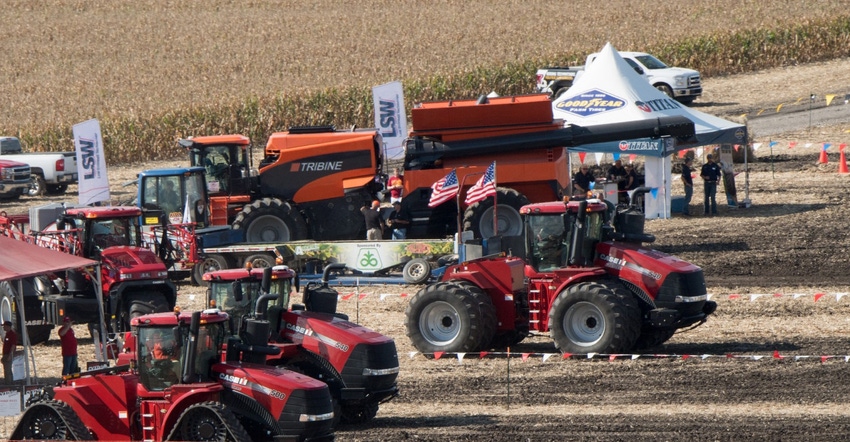COVID-19-related quarantines create "unusual side effect" of 15% growth in tractor sales, with buyers wanting equipment upgrades.

Overall unit sales of agricultural tractors and self-propelled combines in May 2020 rose in the U.S., according to the latest data from the Association of Equipment Manufacturers (AEM), with sales growth for smaller machines overpowering declines in the bigger segments and for combines.
U.S. total farm tractor sales rose 15.1% in May compared to 2019, while self-propelled combine sales fell 2.9%. Heavy-duty tractors (100 hp-plus, articulated, four-wheel drive) declined in unit sales in the U.S. Total year-to-date sales of all farm tractors now show positive growth for 2020, at 4%, while combine sales remain down 9.5% in the same period.
“The growth we’re seeing in the sub-100 hp segments appears to be an unusual side effect of COVID-19-related quarantines as large home property owners and hobby farmers are spending more time at home -- and with their equipment -- and desiring an upgrade,” said Curt Blades, senior vice president of Ag Services at AEM. “The larger machinery that remains in decline are row-crop tractors and harvesters that do the major work on commercial farming operations. This decline is clearly a reflection of uncertainty in the overall ag economy at this time.”
For Canada, tractor sales fell across most segments in May, leading to an overall decline in tractor sales of 0.8%, with self-propelled combines following along, falling 65% to only 41 units sold. That puts overall farm tractor sales in Canada down 9.4% year to date for 2020, and combine sales are down 41.1%.
AEM's monthly "U.S. Ag Tractor & Combine Report" shows that farm tractor unit sales were down just under 1% for January and February compared to the previous year, but in March, sales plunged 15.6%. Self-propelled combines had a rougher first quarter all around. Sales were down 22.6% in January/February and another 11.9% in March.
"Although the March numbers were likely impacted by COVID-19, it is still too soon to tell the ongoing impact of this crisis on ag equipment sales," AEM director of market intelligence Benjamin Duyck said.
April's data showed signs of promise. Farm tractor unit sales were up 12.3% from April of last year, and self-propel combines climbed 4.1%.
Also in April, AEM conducted a survey to gauge the attitudes of equipment manufacturing company chief executive officers. Nearly everyone (95%) felt that COVID-19 was having a "very negative" impact on the overall economy. However, far fewer (57%) felt like the equipment industry was being hit in a very negative way. Furthermore, less than half (45%) felt like their individual company was being hit unusually hard, and just 31% felt like their supply chain was being affected very negatively. Generally speaking, the majority of CEOs felt like COVID-19 was having a "moderately negative" impact on the agricultural equipment business environment.
As difficult as it is to look into the deep mist of the COVID-19-caused economic crisis, the CEO survey helps bring a few things into focus. Roughly 62% of CEOs anticipate improvements through the remainder of the year, while just 11% see things as getting worse. Roughly 27% expect things to remain the same.
In looking at the April survey results, the CEOs remain concerned about potential supply chain disruptions. Roughly 55% of CEOs are concerned about customer deliveries being delayed due to a lack of production, while 33% are concerned about an inability to simply schedule deliveries. Roughly 42% of CEOs are concerned about procurement obstructions due to suppliers not being deemed "essential businesses," while 31% are concerned about an inability to receive deliveries.
About the Author(s)
You May Also Like




.png?width=300&auto=webp&quality=80&disable=upscale)
